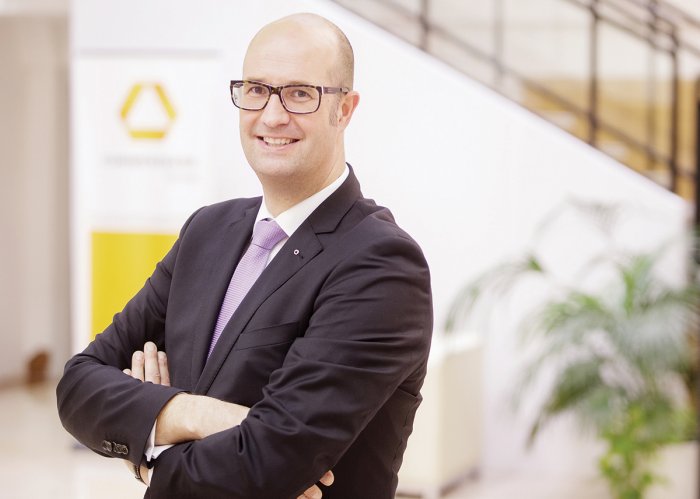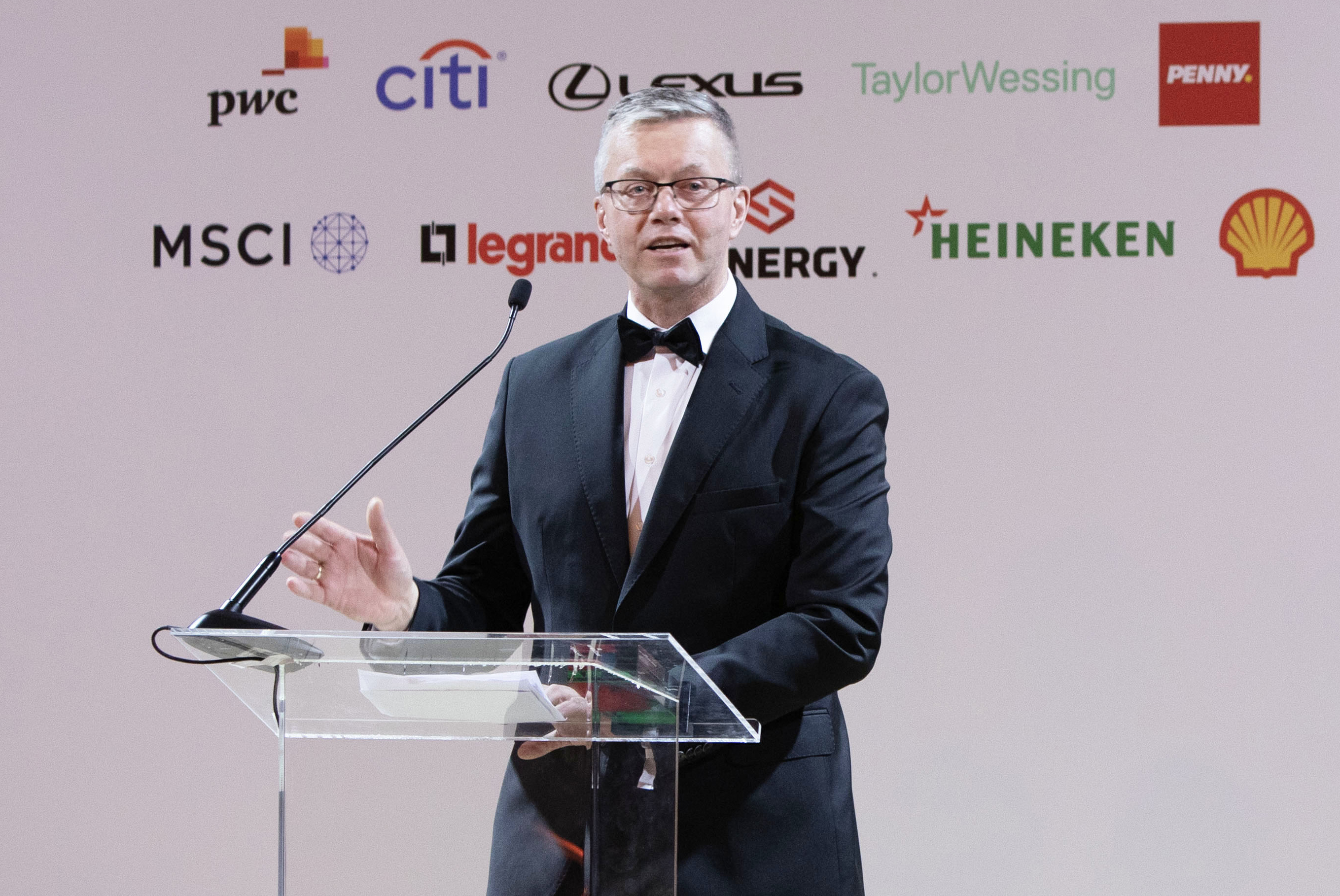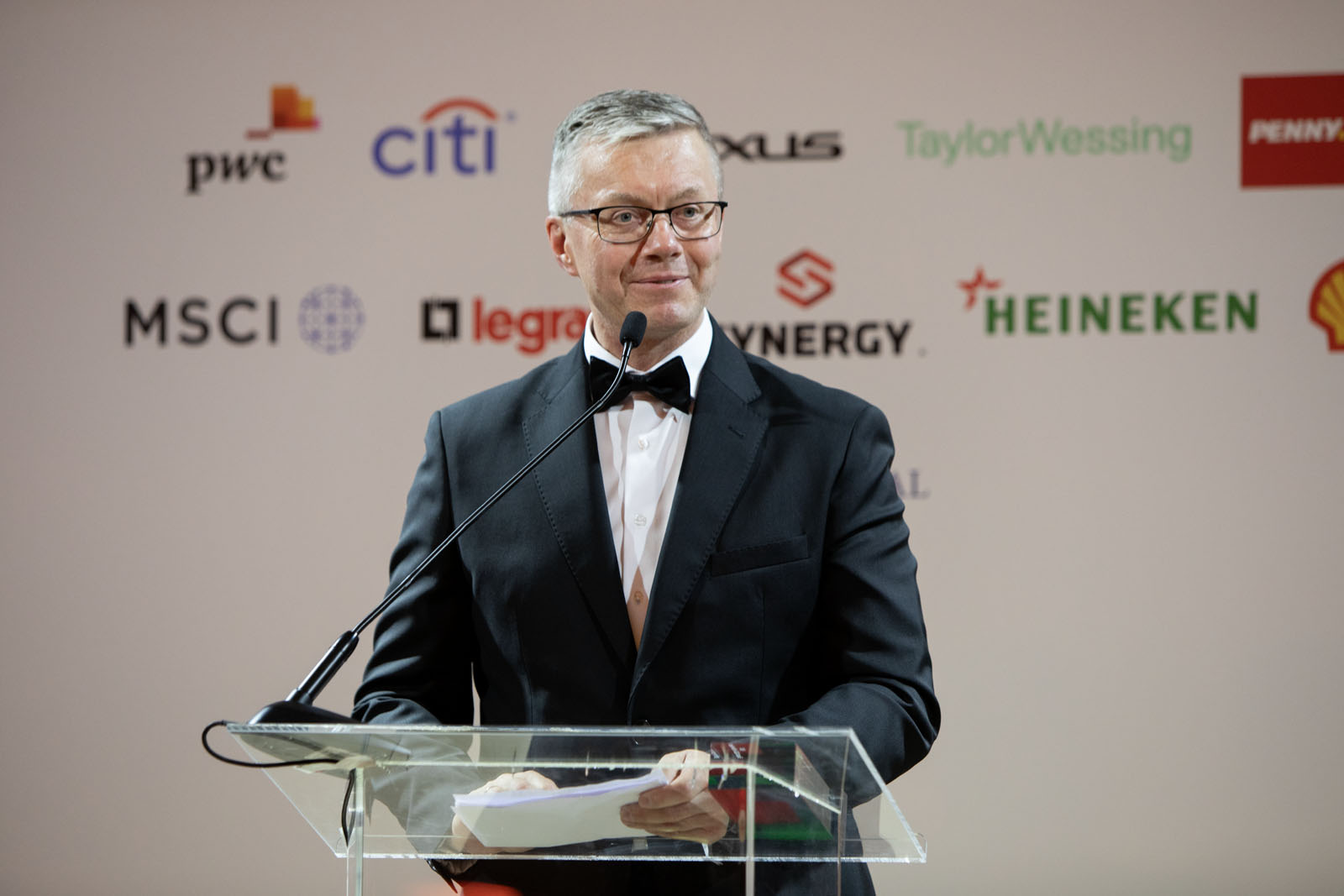Adding value and diversity to corporate banking

Corporate entities tend towards the small “c” conservative, so perhaps it is no wonder that the corporate banking sector does the same. Stability and reputation are vital, and Klaus Windheuser President-CEO believes Commerzbank Zrt. has both in spades. What it also has, where it adds value, he says, is in its embrace of diversity in its widest form.
Klaus Windheuser President-CEO, Commerzbank Zrt.
Many people in Hungary seem to equate diversity with womenʼs issues. Commerzbank does its bit in the sphere too, and in November it won the “Best Workplace for Women” title for 2015 from the Association for Women’s Career Development in Hungary (MNKS) – more on this later.
“Doing more for women is important, but diversity is about both genders, and gays, and different religions and nationalities, and the disabled, because when all of those people are in the mix, that is what adds value. When you have different voices contributing, that is when you find the best ideas, the best possible solutions.”
And so he decided to introduce a practice from his time with Commerzbank in Frankfurt: “Focus on Fathers”. “When I lived in Germany I was part of something called the Fathers’ Network. That was very close to my heart, and I thought it might be interesting to introduce something similar here. I know from my own staff here, but also from talking to other CEOs in the sector, that it is very unusual in Hungary to have a father stay at home with the newborn child, but that is not the case in Germany.”
So Commerzbank arranged a session for 15 male members of staff who had expressed an interest in the idea, with five dads from Germany’s Fathers’ Network, and a Hungarian expert. Windheuser also attended, and shared his own experiences of taking two months’ paternity leave when his son was born.
Something Moving
Windheuser says no one at Commerzbank Zrt. has thus far applied for paternity leave, and a Hungarian Fathers’ Network has yet to be formed. But the CEO says this is the start of a long process that involves something of a cultural shift. “They have started thinking about the idea; something is moving.”
Which brings us back to that best workplace award. Unlike the Focus on Fathers, Windheuser says he has introduced nothing new on the female front, other than suggest the bank start applying for awards. The reasoning behind that was simple: it is good publicity both towards the market, and to potential hires. He never expected the bank would win an award in its first year.
“Our success was based on three pillars: the quota of women in leadership roles in the bank, which is very high; the training and incentive programs we offer both to junior and senior staff; and the way we keep in contact with mothers at home on maternity leave, inviting them to company outings and events, briefing them on strategy developments, keeping them connected with what is going on here, and offering part time work when they want to come back.”
In terms of reputation, the award certainly seems to be helping: despite the labor shortages employers now face across the country, Windheuser says he has few problems recruiting. “Commerzbank puts an emphasis on diversity as we aim to have the best people in the market on board to give clients the best service,” he says.
“We don’t even really need to advertise. This is a combination of a couple of things: we have a good reputation – people want to work for us – and we are small. Big companies with good reputation have to hire hundreds of people; I just need a couple.” He does admit to one problematic position, however; the bank has been looking for an IT programmer for a couple of months. “But then everybody in Hungary is looking for IT engineers,” the CEO notes ruefully.
Commercial banks, of course, are ultimately judged on their figures, rather than their popularity. So how was last year? “It was good. For the banking industry it was a nice year, starting from the point that the regulatory burdens – the so-called unconventional measures as they are known in Hungary – were eased. There were no FX conversions, and the banking levy was halved, more or less. We accompany our targeted clients, be it international subsidiaries or Hungarian corporates with more than EUR 12 million revenue, with tailored solutions. That is very much appreciated.”
Hedging Risk
Banks are now able to focus on their core businesses, no bad thing as “the market is tough and margins rather low”. It is a market place in which one has to offer something different and better. “In that regards Commerzbank is a good proposition: we are the Western bank in Hungary with the broadest network and thus the capability to hedge country risk all around the world, especially in key developing markets, among other things. We started last year to really play the value proposition card, and that will be the approach in 2017,” the CEO says. “Our German background is very well appreciated here. Hungarians like Germans, they like our values: they see us as predictable and reliable, they like the speed of decision making, and that we stick to a decision once made. On top of that, I have ‘best in class’ teams here: each account has a group of specialists and one coordinator who is the relationship manager.”
So what is the target for 2017? “I want to grow by 10% and increase our market share. I think that is feasible. The environment is OK; we have a value adding proposition for clients in the Hungarian environment.”
Importantly, he now believes he will be able to concentrate on that target, without worrying about what the government might do next. “The direction is good. Of course I would be happier if they brought the bank levy down to zero, but basically, I believe, the decision has been made to bring it down further. It is good that there is no new burden, and policies like the lending program have supported our business.”
In terms of new trends, Windheuser comes back to the fact that the corporate banking sector is conservative, and values stability over change. Moves towards digitalization will, however, definitely happen in banking in general, and also among the corporate clients, and Commerzbank is positioned to help here, he says.
“We are beginning to see a trend towards club deals – syndicated loans for mid-caps – which are very common in Germany and where we are the perfect arranger and advisor. It means clients have one agency to deal with; they do not have to negotiate with all the banks individually, or provide all of them with papers. But structured and individual hedging solutions, for example, are something we are still waiting to see develop more in this market. That is a shame, because we have lots of experience in this and good ideas about how we could deliver structure to hedge corporate exposures.”
SUPPORT THE BUDAPEST BUSINESS JOURNAL
Producing journalism that is worthy of the name is a costly business. For 27 years, the publishers, editors and reporters of the Budapest Business Journal have striven to bring you business news that works, information that you can trust, that is factual, accurate and presented without fear or favor.
Newspaper organizations across the globe have struggled to find a business model that allows them to continue to excel, without compromising their ability to perform. Most recently, some have experimented with the idea of involving their most important stakeholders, their readers.
We would like to offer that same opportunity to our readers. We would like to invite you to help us deliver the quality business journalism you require. Hit our Support the BBJ button and you can choose the how much and how often you send us your contributions.








